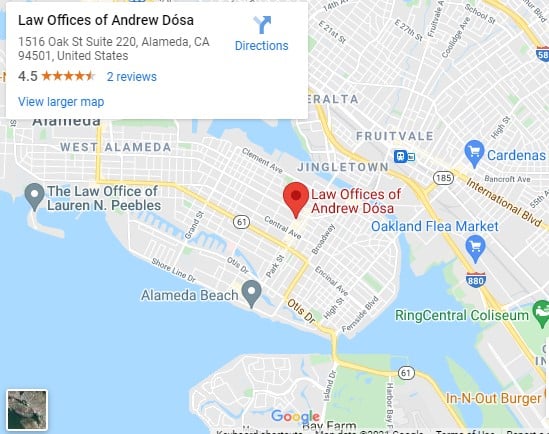What are these motions and when do you make them?
When you cannot negotiate a desirable disposition or resolution of your case, there is only one other possibility. You are going to trial. You will be calendared for a setting hearing or for trial in the Presiding Judge’s Department. Realistically, you won’t try the case there. You will be sent to a department among the designated trial courtrooms.
When there is no turning back, you are facing that daunting task of working every angle and argument to limit the potential dangers at trial. If you want the judge to make favorable rulings before the trial starts, you will file Motions in Limine. These Motions are used to set good rules for the conduct of the trial and on some factual or legal issues.
Some of the Motions are designed to do what they sound like–to limit or eliminate something you believe will be harmful. Sometimes, the Motion will be part of your going on the offensive. The following points are all topics you want rulings on to help your defense.
1) The Court Must Exclude Testimony From Prosecution Witnesses Regarding Defendant’s Guilt, Whether He Committed Any Of The Offenses Charged, Or Their Opinions As To The Definitions Of The Charged Offenses
2) The Court Should Exclude All Witnesses From The Courtroom Under Evidence Code Section 777
You do not want to have other witnesses in the courtroom when they are not testifying, so that they cannot hear testimony of other witnesses–and be influenced to testify in a similar way.
3) The Court Should Compel Production Of Any Reports And Notes, Including Rough Notes, Of All Prosecution Witnesses
Usually you get all the discovery, but sometimes it is withheld by the prosecution. You really want the Court to exclude the testimony of those witnesses, typically police officers. The final argument I make under this category is this : “Defendant also requests that any evidence related to such late discovered documents be excluded.”
4) The Court Should Compel Production Of Any Prior Or Pending Charges Against All Prosecution Witnesses
5) The Court Should Compel Production Of Any Exculpatory Evidence To The Defense
The prosecution has a duty to disclose all evidence that is favorable to the defense that is material to guilt or punishment. Brady v. Maryland (1963) 373 U.S. 83. This obligation includes all evidence that is exculpatory, mitigating, would reduce a penalty, or might be used to impeach a prosecution witness. Id. at 88. This is about all evidence that may reasonably help the defense, not just evidence that is likely to affect a verdict. People v. Morris (1988) 46 Cal.3d 1, 30.
6) The Court Should Compel Production Of Any Impeachment Evidence To The Defense
7) The Court Must Exclude Any Written Documents Or Other Physical Evidence Not Already Disclosed To The Defense (Penal Code Section 1054 et seq.)
8) The Court Should Exclude Expert Testimony (if it has not been disclosed to Defense)
9) The Court Must Exclude Evidence Of Any Prior Bad Acts Or Convictions of Defendant (that has not yet been produced or identified by the Government)
First, evidence of specific conduct should be excluded as inadmissible character evidence (Evidence Code Section 1101 (a)).
Second, evidence of specific conduct should be excluded as overly prejudicial.
10) The Court Must Preclude All Parties From Referring To The Complaining Witness(es) As a “Victim” and Mr. Smith As a “Suspect”
11) The Court Should Admonish Prosecution Witnesses To Testify In Accordance With The Court’s Rulings On The Foregoing Motions In Limine
There are various other types of Motions in Limine, and some cases have very particular issues to be addressed by them. Some, like many noted above, are standard and fit every case.
The final Motion in Limine included here seeks to limit/eliminate the chance of statements made by Defendant that were obtained after his “arrest.” I have looked at case law following the Miranda decision in the series about Motions to Suppress. Here, I have presented the same basic argument, but my approach is slightly different.
12) The Court Should Exclude Any Post Arrest Statements Elicited from Deramous
Prior to admitting a defendant’s post-arrest statement into evidence before a jury, the Court must hold a hearing outside the jury’s presence to determine the admissibility of that statement pursuant to Evidence Code Section 402. “[I]n a criminal action, the Court shall hear and determine the question of admissibility of a confession or admission of the defendant outside the presence of the jury if any party so requests.” Cal. Evid. Code § 402 (West, 1997 Supp.) (emphasis added).
In Miranda v.Arizona, (1966) 384 U.S. 436, the Supreme Court held that the prosecution may not use statements, whether exculpatory or inculpatory, obtained from custodial interrogation unless procedural safeguards guarantee that the accused has been informed of and freely waived the Constitutional privileges of the Fifth and Sixth Admendments. Id. at 444-445.
In defining custody, Miranda and its progeny require only that the individual “feel deprived of [her] freedom in any significant way, so that custody can occur even in the absence of a formal arrest.” People v. Benalty (1989) 208 Cal.3d 900. In Stansbury v. California (1994) 511 U.S. 318, the Court held that the initial determination of custody depends on the objective circumstances of the interrogation, not on the subjective views of the interrogating officer or the person questioned. In Berkemer v. McCarty (1984) 468 U.S. 420, 442, the Supreme Court stated that the test is how a reasonable person in the suspect’s position would have understood the situation. Several factors are considered when determining whether a defendant believes he is free to leave, including the site or location of the interrogation, demeanor of the officers, and the nature of the questioning. See People v. Herdan (1974) 42 Cal.App.3d 300, 306; see also People v. Forster (1994) 29 Cal. App.4th 1746, 1753.
Interrogation includes express questioning and “any words or actions on the part of the police officers that they should have known were reasonably likely to elicit an incriminating response.” Rhode Island v. Innis (1980) 446 U.S. 291, at 302. A court must look to the “total situation” including the length, place and time of questioning, the nature of the questions, conduct of the police, and all relevant circumstances. People v. Terry (1970) 2 Cal.3d 362, 383.
A request for an attorney automatically invokes the privilege to remain silent. People v. Soto (1984) 157Cal.App.3d 694, 705. An express waiver of one’s Miranda rights is not necessarily required. A waiver will not be presumed, however, simply from an accused’s silence after being advised, or because a confession was in fact later obtained, if the surrounding circumstances do not support that conclusion. Miranda, 384 U.S. at 475. In Edwards v. Arizona (1981) 451 U.S. 477, 482, the Supreme Court reaffirmed its holding in Miranda and required that the waiver not only be voluntary, bt also knowing and intelligent. A court must look to the defendant’s actions and words at the time of the statement and consider the testimony of any experts on the issue in deciding whether any of these factors affected the defendant’s waiver. People v. Marshall (1990) 50 Cal.3d 907, 925.
Absent the prosecution’s stipulation that they do not plan to introduce any post-arrest statements by the defendant, a hearing must be held pursuant to Evidence Code Section 402.
Please keep coming back to my website, as I will be regularly adding material, with my present goal of giving as much information about what goes into a vigorous and aggressive defense.
©Andrew Alexander Dósa 2021





